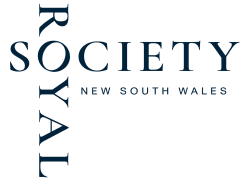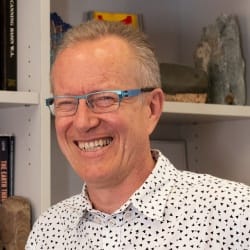

156th Annual General Meeting
and
1312th Ordinary General Meeting
Date: Wednesday, 5 April 2022, 6.00 pm AEST
Venue: Gallery Room, State Library of NSW, Shakespeare Place, Sydney
Entry: Society members, $10; Non-members, $20; Students, $5
Registration: Registration through Membes is required before 2.00 pm on Tuesday, 4 April 2023
While entry to the AGM is for Society members only, all are welcome to the OGM and Lecture
This notice provides information about the:
Annual General Meeting
Rule 4(c) of the Society’s Rules requires that an Annual General Meeting (AGM) must be held in April of each year.
Business of the Annual General Meeting
The formal business of the Annual General Meeting, including the election of Council Members, will be conducted via an electronic ballot, in accordance with Rule 18.
Members, Fellows and Distinguished Fellows, who are financial in 2023, will receive an email from the Society’s Returning Officer, via the electronic balloting company, Election Buddy. This email will include a unique ballot link that provides a random, secret access key for each voter. Voter anonymity is assured by ballot settings which ensure that voter choices cannot be linked to any voter.
The ballot will run from Monday 13 March 12.00 noon AEDT to Monday 3 April 12.00 noon AEST and will address:
- Procedural Business:
- Confirmation of the Minutes of the 155th Annual General Meeting
- Confirmation that the Annual Report of Council and the Financial Statements for 2022 be received
- Confirmation of the proposed Auditors for 2023
- Election of Office-bearers and Council members, namely the:
- Secretary — from a field of two (2) candidates.
Please note that:
- for each of the positions of President, Vice-President, Treasurer, Librarian, and Webmaster, only a single nomination was received. Accordingly, these Office-bearers will be declared elected at the AGM without the need for a ballot
- for the three vacancies for Ordinary Members of Council, only three nominations were received. Accordingly, the candidates for the three Council Member vacancies will be declared elected at the AGM without the need for a ballot.
The results of the ballot will be announced by the Returning Officer at the AGM on 5 April 2021 and will be posted on the website on the following day.
The Ordinary General Meeting will commence immediately following the conclusion of the Annual General Meeting.
Relevant Documents
The Agenda for this meeting and Minutes of the previous AGM are available on the Meetings page of this website.
The Annual Report from Council and Financial Statements for 2022 (link to follow) will be available on the Governance page.
It is suggested that Members and Fellows read these documents in advance of the commencement of the ballot.
Election of Office-Bearers and Ordinary Members of Council
Listed below are the nominations for the incoming Council received by the Secretary by 5.00 pm AEDT on Monday, 6 March 2023.
For those Office-bearer and Councillor roles where there are more nominees than available positions, an election is required. For roles where there are the same number or fewer nominees than there are available positions, the candidates will be declared elected at the AGM without the need for a ballot.
In all cases, candidates have been invited to provide an optional statement outlining how their expertise and experience fit them for these roles and will benefit the Society. These statements are available through the links below and also are provided as information on the electronic ballot form.
| Office/Role | Candidate |
| President | Susan Pond AM FRSN |
| Vice-President | Peter Shergold AC FRSN |
| Secretary | Donald Hector AM FRSN |
| Bruce Ramage MRSN | |
| Treasurer | Bhavin Raval MRSN |
| Librarian | Stephen Garton AM FRSN |
| Webmaster | Lindsay Botten FRSN |
| Councillors | Katherine Belov AO FRSN |
| (3 positions) | Davina Jackson FRSN |
| Christina Slade FRSN |
Ordinary General Meeting
The 1292nd Ordinary General Meeting will follow the Annual General Meeting and includes a face-to-face lecture to be delivered by Professor Dietmar Müller FAA, winner of the 2019 RSNSW Clarke Medal.
The Agenda for this meeting and Minutes of the previous OGM will be available on the Meetings page of this website.
 “Reconstructing ancient oceans, sea-level fluctuations, the deep carbon cycle and biodiversity ”
“Reconstructing ancient oceans, sea-level fluctuations, the deep carbon cycle and biodiversity ”
Professor Dietmar Müller FAA FAGU
Professor of Geophysics
School of Geosciences
University of Sydney
Date: Wednesday, 5 April 2023, 6.00 pm for 6.30 pm AEDT
Venue: Gallery Room, State Library of NSW, Shakespeare Place, Sydney
Entry: Society members, $10; Non-members, $20; Students, $5.
Registration: Registration through Membes is required before 2.00 pm on 4 April 2023
All are welcome
Summary: This presentation is a journey through geological time, reconstructing ancient oceans that have little resemblance to the oceans we know today. These reconstructions are enabled by the EarthByte Group’s Virtual Earth Observatory, powered by the GPlates software. They represent decades of software development and geodata synthesis to recreate now-vanished ocean basins. These digital maps form the basis for understanding the driving forces of changes in ocean basin volume and long-term sea level, the deep carbon cycle and biodiversity. Our models track oceanic carbon reservoirs through time and demonstrate that the carbon storage and transport capacity of the oceans, from mid-ocean ridges to subduction zones, has increased 5-fold since the breakup of the Pangea supercontinent 200 million years ago, reflecting the emergence of biogenic deep-sea carbonate sediments as the largest carbon reservoir on Earth. Our maps have also been used to reconstruct marine biodiversity. An ocean evolution model over 550 million years, validated with fossil data, shows that modern ocean biodiversity, which is at its highest level ever, was achieved through the long-term stability of the location of so-called biodiversity hotspots. These are regions of especially high numbers of species located in warm, shallow, nutrient-rich waters. This study also emphasizes that, if current trends continue, projected diversity loss can take millions of years to recover, arguably beyond our own existence as a species.
Dietmar Müller is Professor of Geophysics at the School of Geosciences, University of Sydney. He received his undergraduate degree from the Univ. of Kiel, Germany, and his PhD in Earth Science from the Scripps Institution of Oceanography, UC San Diego/California in 1993. After joining the University of Sydney he built the EarthByte Research Group, pursuing geodata synthesis through space and time. He is leading the construction of a Virtual Earth Laboratory, assimilating the wealth of disparate geological and geophysical data into an experimental planet. Dietmar’s virtual globe software and data are benefiting universities, government organisations, industry and schools worldwide, with end-users across over 190 countries. Novel applications include the development of combined geodynamic, tectonic and surface evolution models unravelling the origins and history of continental landscapes, coastlines, oceans and their environments. He held an Australian Laureate Fellowship from 2009-2014, and is a Fellow of the American Geophysical Union, and the Australian Academy of Science.
